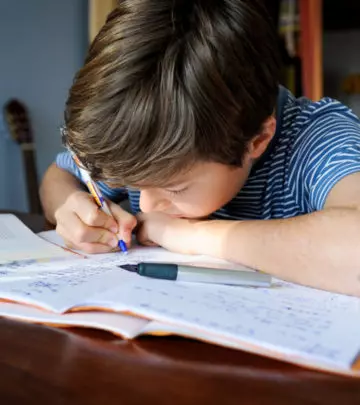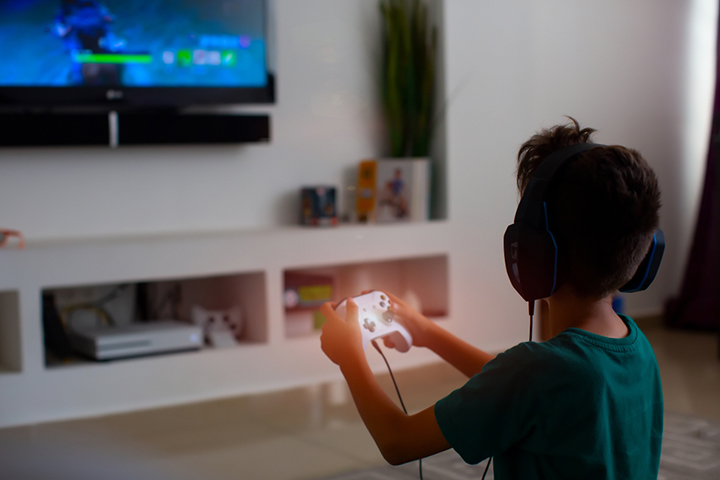
Image: Shutterstock
Bringing out our child’s brilliance and potential to be shown to the world is one of the biggest goals we carry as a parent. In fact, working with children in any capacity would make you want to ensure that this is done. However, challenges revolving around the child’s ability to concentrate and focus during a task can hinder them from actively showcasing their gifts and abilities to the people around them.
As parents we have all been in this place of frustration. Children sometimes just find it hard to focus on one thing and there are many reasons this may be the case. From stress to ADHD many obstacles present itself on their path to completing a task. Children who are neurodivergent, gifted or neurotypical all struggle with these issues from time to time. In this article, you will be able to go over a few tricks and ideas that will push your child’s concentration to greater levels and allow them to be the best versions of themselves in every area of their life be it academic, sport or at life in general.
1. Use Their Interests In Your Favor
Image: Shutterstock
If your child isn’t excited about their schoolwork, try connecting it to things they enjoy. For example, if they like video games, find a game that involves math. You can also find math-related books or games based on their favorite interests. This way, they might become more interested in subjects like math. As they start having fun while learning, they’ll stay focused and avoid getting bored or upset.
2. Time
Image: Shutterstock
Pressure can be a real productivity killer for your child, and time management is crucial in alleviating that pressure. While it’s true that some people thrive when working under the pressure of deadlines, many others don’t. The key difference lies in effective time management. To support your child, it’s important to ensure they have a reasonable amount of time to complete tasks. This means finding the balance between providing enough time to complete the task thoroughly and preventing them from lingering in procrastination mode.
Moreover, it’s essential to consider when your child is most productive. Everyone has different times of day when they can concentrate best. Allowing your child’s natural rhythms to dictate when they work on tasks requiring focus can significantly improve their efficiency. Additionally, it’s essential to incorporate breaks into their schedule and account for any time lost due to distractions.
The use of timers and clocks can be a valuable tool for some children, as the ticking can act as a motivator to concentrate and finish tasks efficiently. However, for others, this may be a source of distraction and could even hinder their focus. The key is to find the right approach based on your child’s unique needs and preferences.
3. Tools
Image: Shutterstock
Equipping your children with the right tools for concentration can truly make a difference. This extends to the organization of their study station. It’s crucial that your children have all their stationery, books, and materials neatly arranged and easily accessible in their designated study area. In addition to keeping everything organized, another effective strategy is to allocate time specifically for material and tool gathering as part of the task. For instance, if your child has a substantial science project scheduled for the following week, encourage them to prepare their workspace today. They can contemplate what they wish to create and identify the materials they’ll require to do so. Establishing a clear plan and vision in advance not only fosters a sense of ownership but also serves as a powerful motivator.
4. Switch Things Up
Image: Shutterstock
Learning is supposed to be a fun experience. So if your child doesn’t naturally take to a certain subject matter it’s time to switch it up. If they like fiction more than non-fiction, allow them to read a page out of their favorite book every time they read a page of non-fiction. If they don’t like doing math, allow them to do math in the sand outside instead of on paper indoors. It’s all about including the factors they like when learning things they may not gravitate towards. Creative learning is fun!
We all have very stereotypical ideas when it comes to what focus and concentration looks like. Sitting in a classroom is not what
constitutes being a focused student. Ask yourself, is your child not interested in anything? Are they always restless and fidgety? You’ll realize that there are times when they are willing to concentrate and that is your general framework. Tap into their interests and work forward.
Getting your kids to concentrate when they don’t want to may feel absolutely impossible. But it doesn’t have to be an exhausting task. With a few tips and tricks you can redirect their attention and increase their level of concentration. Happy parenting!
















